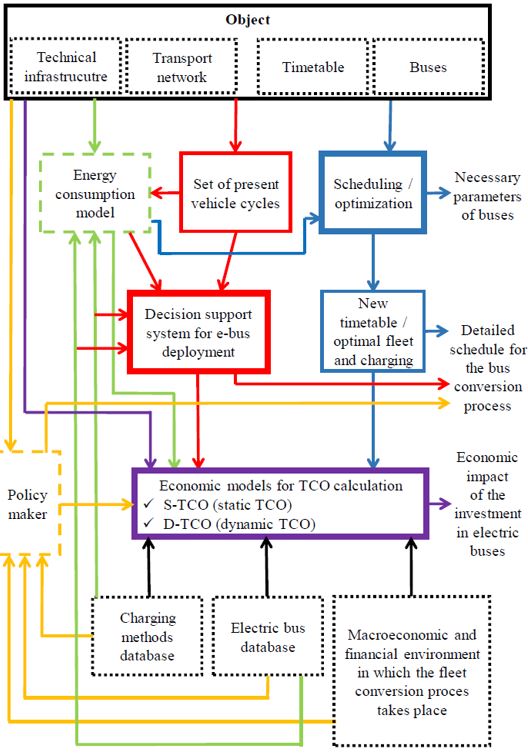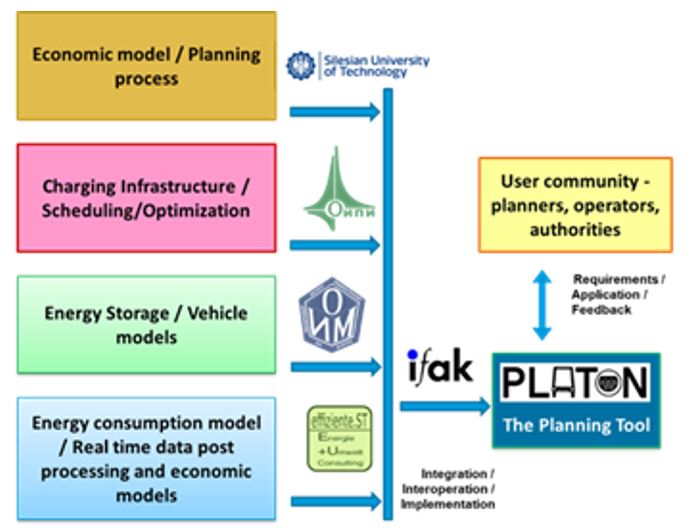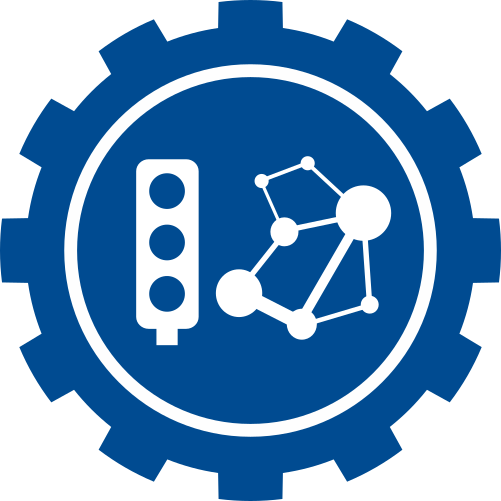Project PLATON
The PLATON project aimed to plan the planning process for the implementation of electric buses and to implement a toolkit for the conversion of the conventional or mixed fleet to a 100% electric bus fleet. The main task of the Silesian University of Technology research team was to plan the conversion process and to create an economic model of the total cost of ownership of electric buses in a public transport company.
The project, with the acronym PLATON (Planning Process and Tool for Phased Conversion of Conventional or Mixed Fleet to 100% Electric Bus Fleet), would run from 2018 to 2020. The project leader is the Magdeburg Institute for Automation and Communication, and the consortium also includes two institutes of the National Academy of Sciences of Belarus (Joint Institute of Mechanical Engineering and United Institute of Informatics Problems), the Austrian Effiziente.st Energie und Umweltconsulting e.U., and the Belarusian electric bus manufacturer Belkom munmash. Associated partners of the PLATON project are Volvo Bus Citymobility, PKM Sosnowiec and PKM Jaworzno, as well as the Belarusian branch of Stadler. The Department of Transport of the Silesian University of Technology is the main executor of the tasks related to the involvement of two associated partners - public transport operators (PKM Sosnowiec, PKM Jaworzno) and manufacturers of electric buses, to design the process of converting the fleet of public transport operators from conventional or mixed-propulsion buses to a 100% electric fleet and its implementation as a network application, carried out by the project leader.
A network of relationships between elements of the fleet conversion process was presented as part of the planning process. An allocation of the individual attributes to their corresponding subject areas was made. The planning process takes place on an "object" defined as a public transport operator operating buses on a specific transport network and having the necessary technical equipment available. At the beginning of the analysis, the transport network is served by a collection of conventionally driven vehicles or a mixed fleet according to a valid timetable (operation of transport tasks by individual vehicles). The goal of the planning process is to try to reach a state where 100% of the bus fleet is battery-powered. The developed Total Cost of Ownership TCOModel shows the main cost categories with the cost of purchasing electric buses for the whole fleet and the corresponding infrastructure. Also included are the costs of depreciation in the value of the buses related to their useful life, as the difference between their purchase cost and their value at the time of resale / decommissioning.











